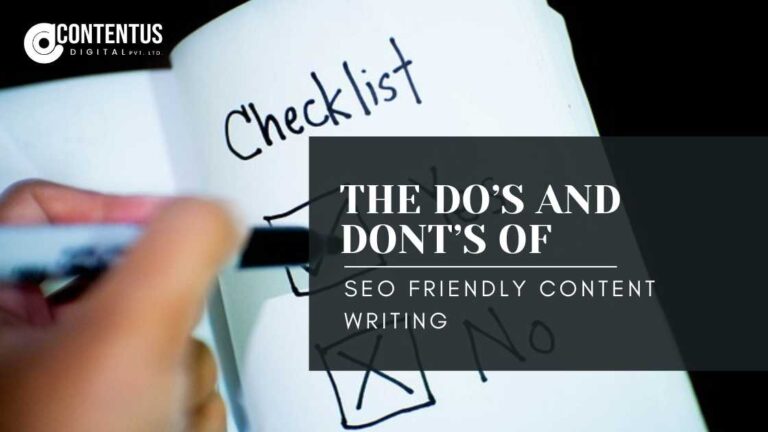What is a cover letter? How to write the best cover letter?
When you send a cover letter to the employers, you easily gain attention from them. The letter allows them to learn about your skills, expertise, accomplishments, and values from the letter. Even some companies mandate to send a cover letter before moving forward with the hiring process. Thus, you have to understand what a cover letter is and its importance.
If you want to create a winning cover letter for your next job, you should hire a professional cover letter writing service. With their premium writing skills and expertise, they craft customised letters for you.
Now, in this blog, you will learn about how to write a quality cover letter for your job purpose.
What is a cover letter?
A cover letter is a document of one page which includes additional information about your skills and experiences for the job role you’re applying for. This information should not be mentioned in your resume. This letter includes three or four short paragraphs. It shows your interest and courage for the job to the recruiters. It also differentiates your identity from the other candidates. Also, it’s significant to customise your cover letter for each job role and company’s value.
If you think so, you can take the aid of professional cover letter writing services for crafting your letter.
Best tips to write an effective cover letter
- Comprehensive research
Before starting your cover letter writing, you must go through an in-depth research about the company and your specific job role. For example, you can visit the company’s website, reach the Twitter feeds of their executives, or search the LinkedIn profiles of the employees. These achievements will help you to know about the company’s vision, mission, and work culture. So, later when you start writing, you can customise the cover letter according to the company’s image. Also, it will help you to decide the right tonality for your letter.
Again, it’s a good practice to contact the hiring managers or other employees of the company before writing the letter. It will help you to know more about the particular job you’re looking for. So, you can contact them by sending an email or you can directly message them on LinkedIn. However, not all the time it’s possible to contact them because they might not respond to you. That’s acceptable, too. But it’s always good to try to reach them.
- Strong opening
Average people start their cover letter writing simply with – ‘I’m X. I am applying for Y job which I’ve seen in Y place.’ But this is not the right approach for starting your cover letter writing. Instead, you should customise the opening line by mentioning your current job role and, the number of years of experience you have, and show your enthusiasm for working with their team. Then you can include a few sentences about your experience and your responsibilities throughout those years. But remember that, you should not repeat the same things you’ve mentioned in your resume.
By writing in this way, you can easily attract hiring managers from the pile of cover letters from the other candidates. If you have any personal connection to someone within that company, you can mention it too within the first few sentences. Also, never forget to address the recruiter directly. But you should not write in a humorous tone or flowery language.
- Write from the future perspective
Here, you have to understand the major difference between your resume and the cover letter. Your resume holds the record of your past experiences but the cover letter conveys what you want to do in the forthcoming years and where you want to position yourself in the future. So, you have to craft your letter from this perspective.
Moreover, some experts say that you should mention if you’ve planned any career transition, the suitable cause behind it, and your expectations from this decision. For example, if you’re changing your career from musician to journalism – you have to describe this transition. It will give you a good opportunity to show your transferable skills which are common for all jobs (eg. communication skills, time management, teamwork, etc.).
- Focus on your values
Recruiters look for people who can fulfil their requirements for a specific job role. Also, every company has to face several challenges in their business. Thus, they also look for whether you would be able to help them overcome those challenges. So, you can talk about how your experience and expertise will become helpful in solving their challenges. Also, you need to explain here how you have solved a challenge in your previous company.
Furthermore, you can add your adaptability and ability to learn quickly. These two skills are also required in every job. It would be better if you explained how these skills helped you to support your team in a critical condition in your previous company. For example, you can state how you have adapted a skill quickly and supported your team to fulfil their urgent requirement.
- Convey your enthusiasm
When you get a rejection email from a recruiter, not all time it means that you have a lack of skillsets. Sometimes hiring managers don’t believe in your capability. That’s why they don’t hire you. Thus, you need to convey your enthusiasm for the job, properly. So, you need to mention why you need the position and what attracts you to become willing to work in that organisation. It also reveals your excitement for the job. But don’t be overwhelmed. Also, if you aren’t excited about the job or the company, you shouldn’t apply for it and write a letter.
Moreover, you should maintain transparency in your writing. So, never try to copy-paste anything from any written sample. Create fresh and unique content through it.
- Tonality
First of all, you have to maintain your formality and professionalism in the cover letter. So, don’t write anything which may sound desperate or anything meaningless. Maybe you have the urgency to get the job, but it shouldn’t be expressed through your writing. You have to maintain this stability and have to act maturely.
So, you have to figure out what kind of languages the hiring managers prefer. Here, a good practice is to put yourself in the shoes of the recruiters to detect the loopholes in your tonality. Though it’s not an easy task to find the flaws of your tonality, you should try it. But ensure that you have not conveyed any desperation through your letter. Furthermore, if you think it’s better to get help from a professional cover letter writing service, you should go for it.
- Keep it precise
Finally, one thing you must be aware about that you have to keep your cover letter simple and precise. Don’t make it lengthy and avoid unnecessary texts. Remember that recruiters have so many letters to read. So, they can’t give you more than 1 minute to read your letter. So, it should be straight and short so that they can read it at a glance. Thus, you can collect reviews about your letter from your former colleague, a friend, or a mentor who can figure out how to simplify and sort it.
Steps to follow to write your cover letter
- Write your name and address at the top of the cover letter.
- Then, add the date on which day you’re sending the letter. You should write it in a separate line rather than the name and the address line.
- Next, you have to enlist the name and other information (their office address, email ID, contact no, etc.) of the recipient.
- Then, start your letter with a standard greeting like ‘Dear’ or ‘Hello’.
- Next, write the opening paragraph. Already you have got a clear understanding about how to write it.
- In the second paragraph, you have to include your background details such as skills, achievements, and expertise. In the third paragraph, you have to mention the fitness for the job role. So, here you need to show the specific skills or achievements which show your fitness for the role. In these paragraphs, you must include the keywords listed in the job description.
- In the last paragraph, you need to recap the reasons for your job application and mention that you’re looking forward to hearing from the recruiter.
- Finally, finish the letter with your name and signature.
Conclusion
A cover letter answers the question – why are you the right candidate for this job? So, you have to write the letter with this perspective. Also, you can think about it another way – why the recruiter should invest his/her time in reading your letter. So, follow the tips and rules to design your letter. Also, it’s a good practice to get support from the content writing companies in India.







